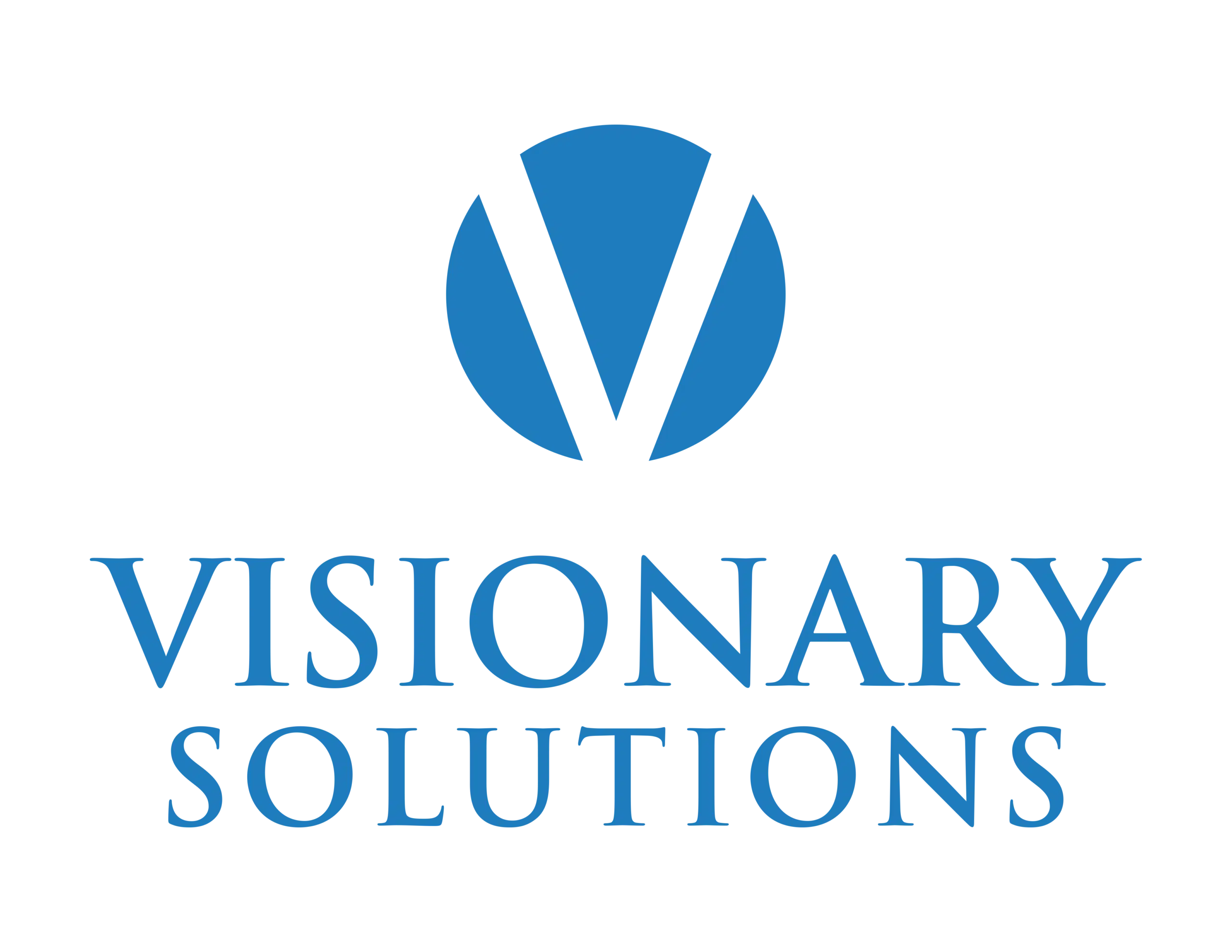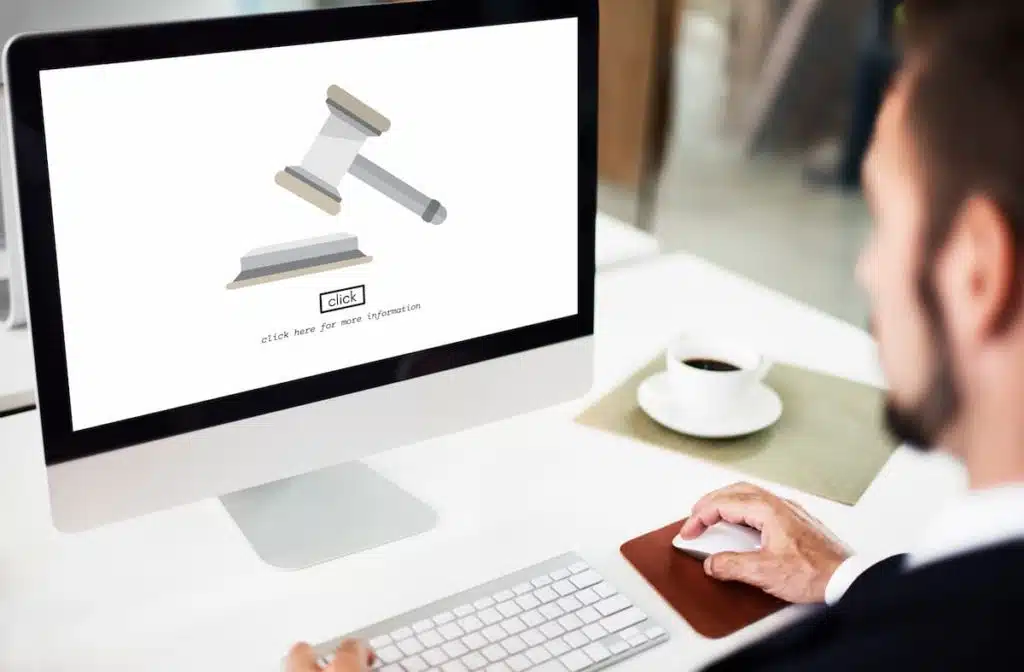In the dynamic world of legal proceedings, every piece of evidence and moment is crucial. Consider a dedicated attorney, racing against time, poring over countless documents to unearth that decisive piece of evidence. This is where litigation support steps in.
In this guide, we explore its critical role, offering insights into its components, benefits, and evolving landscape.
Whether you’re a legal practitioner, paralegal, or simply curious, this guide equips you with the knowledge to thrive in the complex world of litigation.
Join us on this enlightening journey to master this art and navigate legal proceedings with confidence!
What is Litigation Support?
Litigation support is a pivotal component of the legal process, encompassing a suite of services and technologies designed to aid legal professionals in managing, organizing, and presenting vast amounts of information during the course of these proceedings.
In this context, the litigation support definition holds substantial significance. It pertains to the systematic and technology-driven approach that enables legal teams to sift through vast volumes of data, discover crucial evidence, and streamline the presentation of their cases in a manner that is both compelling and sound.
To paint a vivid picture of it in action, consider a hypothetical scenario where a law firm is handling a complex civil litigation case.
In a bygone era, this would have involved mountains of paperwork, labor-intensive research, and tedious document review. However, the modern-day equivalent sees teams utilizing cutting-edge technologies to efficiently process electronic data, including emails, documents, and digital records.
This can not only identify patterns and critical pieces of evidence but also help in the creation of compelling visual aids for courtroom presentations.
The History of Litigation Support
The history of litigation support takes us on a journey of exponential growth.
In its nascent stages, it primarily involved the manual management of paper documents, a time-consuming and resource-draining process. However, with the advent of computers and digitization, the legal industry underwent a profound transformation.
The rise of e-discovery in the late 20th century marked a significant turning point. This approach allowed for the systematic collection, review, and production of electronic documents, dramatically improving the efficiency of legal proceedings.
In recent years, this concept has seen further evolution, driven by data analytics, artificial intelligence, and machine learning. These advancements enable legal teams to not only manage data but also extract valuable insights from it.
According to recent industry trends, the global litigation support software market is projected to continue its growth due to the increasing volume of electronic data in legal proceedings, emphasizing its ever-growing importance in modern legal practice.
Today, the role of litigation support extends beyond managing data and documents. It encompasses a wide range of services, from case management and e-discovery to expert witness coordination and trial support.
Its comprehensive scope ensures that industry professionals can navigate the complexities of this landscape with greater ease, allowing them to focus on what truly matters: building persuasive and legally sound arguments in a courtroom.
All in all, the essence of litigation support lies in its ability to harness the power of technology to manage, organize, and present information effectively in legal proceedings. Its history is a story of transformation, from labor-intensive manual processes to sophisticated data-driven solutions.
As technology continues to advance, litigation support is poised to play an increasingly vital role in the field, ensuring that legal professionals are well-equipped to meet the challenges of the modern landscape.
The Roles of Litigation Support Professionals
Litigation support professionals are integral to the legal landscape, performing a range of critical functions.
Let’s explore their key responsibilities with some real-world examples and expert insights.
1. Pulling Legal Records and Information Management
Litigation support professionals are the guardians of legal records and information. They meticulously organize, catalog, and retrieve vital documents and evidence, ensuring nothing is overlooked.
Example: In a corporate litigation case, a skilled support professional creates a structured database, simplifying access to crucial documents.
This approach streamlines the legal process, saving time and resources.
2. E-Discovery Expertise
Electronic discovery (e-discovery) is paramount in the digital age.
Its specialists identify, collect, and preserve electronic data as legal evidence.
Example: In a product liability lawsuit, e-discovery experts extract data from a company’s servers, revealing critical evidence. This data becomes instrumental in the case’s success.
3. Trial Preparation and Presentation
These professionals assist in preparing for trials. They help organize exhibits, create visual aids, and ensure that attorneys have easy access to information.
Example: In a medical malpractice trial, litigation support professionals create multimedia presentations that simplify complex procedures for the jury.
4. Expert Witnesses and Testimony Support
When expert witnesses testify, litigation support professionals ensure they are well-prepared, managing their materials and schedules.
Example: In a patent infringement case, a litigation support professional helps an expert witness gather research and exhibits, ensuring their testimony aligns with the court’s timeline.
In summary, litigation support professionals’ meticulous work in managing records, facilitating e-discovery, preparing for trial, and supporting expert witnesses is invaluable to the legal system’s smooth functioning.
Their expertise enables attorneys to navigate complex legal terrain effectively and present compelling cases in court.
The Ecosystem of Litigation Support
In the complex and intricate world of litigation, support is the linchpin that keeps the process moving smoothly.
It involves a network of operational dynamics, key players, and integral tasks that collectively provide invaluable assistance to professionals in their pursuit of justice.
At its core, this is a multifaceted domain encompassing a wide array of services and technologies designed to simplify, organize, and streamline the litigation process.
From the inception of a case to the courtroom battle, litigation support professionals are there every step of the way. `
This ecosystem includes the following key components:
- Electronic Discovery (eDiscovery): This is the cornerstone of modern litigation support. As we’ve mentioned previously, it involves the identification, collection, and preservation of electronic documents and data, which are often crucial in today’s cases.
Professionals, with the assistance of support experts, can effectively sift through vast amounts of digital information to find the evidence they need. - Document Management: Managing the multitude of documents involved in litigation can be overwhelming.
They help law firms and legal departments organize and store documents efficiently, often utilizing document management systems and technologies that facilitate quick retrieval. - Data Analysis and Review: Interpreting and analyzing data is a vital component of any legal case.
They employ software tools to dissect data, extract insights, and identify relevant information to build a compelling case. - Trial Support: When it comes to the courtroom, they assist in the showcasing of evidence, ensuring that exhibits, documents, and multimedia presentations are seamlessly integrated into legal arguments.
- Technology Solutions: Technology plays a significant role in modern litigation support.
Experts in this field continually explore and adopt cutting-edge software and tools to improve efficiency, enhance security, and manage case-related data.
These include Legal Case Analysis/ organization, E-discovery, and Verdict Search Software.
Who Employs Litigation Support Professionals?
Litigation support professionals are in demand across a variety of sectors and organizations, each with specific needs and expectations.
Their knowledge isn’t limited to law firms; rather, it extends to a diverse array of industries where complex legal matters can arise.
Here are some sectors that frequently employ them:
- Law Firms: This is perhaps the most obvious one that relies heavily on litigation support.
Large and small firms alike depend on support professionals to navigate complex cases efficiently. They need assistance in all the processes we’ve discussed above.
- Corporate Legal Departments: Many businesses have in-house legal departments that require litigation support services.
These professionals help manage legal matters, ensuring compliance with regulations and assisting in litigation when disputes arise.
- Government Agencies: Government organizations, from local to federal levels, are also consumers of litigation support services.
They may require assistance in cases ranging from administrative law disputes to criminal investigations.
- Healthcare and Pharmaceuticals: This sector, which is highly regulated, often faces complex legal issues, including medical malpractice claims and product liability suits.
They help manage the extensive documentation and data related to these cases.
- Financial Institutions: Banks, investment firms, and other financial entities frequently engage in litigation support services, especially when dealing with issues like fraud, regulatory compliance, and securities litigation.
Success stories abound in organizations that have leveraged the expertise of litigation support professionals. Many have seen dramatic improvements in case management, cost reduction, and the ability to present compelling evidence in court. Testimonials from these organizations attest to the invaluable role of litigation support in achieving successful outcomes.
For example, a multinational corporation facing a complex intellectual property dispute found its path to victory considerably smoother with the assistance of litigation support professionals.
By employing cutting-edge eDiscovery technology and data analysis, they were able to uncover critical evidence that ultimately led to a favorable settlement.
In-house or Outsourced Litigation Support Services
When considering litigation support services, organizations face a critical choice: should they handle these services in-house or outsource them to specialized providers?
This decision has far-reaching implications for the efficiency and cost-effectiveness of legal operations.
In-House Litigation Support Services
Pros
- Full Control: In-house teams offer complete control over the litigation support process, ensuring that operations align with the organization’s specific needs and objectives.
- Immediate Access: Internal teams are readily available, allowing for quicker response times, particularly in urgent situations.
- Confidentiality: Sensitive information remains within the organization, which can be crucial in highly confidential cases.
Cons
- High Operational Costs: Maintaining an in-house litigation operation involves substantial costs, including salaries, benefits, and technology investments.
- Limited Expertise: These may have limited exposure to the latest technologies and best practices in litigation support.
Outsourced Litigation Support Services
Pros
- Cost Efficiency: Outsourcing often reduces operational costs, as organizations only pay for the services they require, eliminating the expenses associated with full-time hires.
- Specialized Expertise: External providers typically offer specialized expertise, leveraging the latest technologies and industry best practices.
- Scalability: Outsourcing allows organizations to scale services up or down as needed, making it a flexible and cost-effective solution.
Cons
- Loss of Direct Control: Organizations may have less direct control over the process when outsourcing, relying on the expertise of the external provider.
- Confidentiality Concerns: There may be concerns about the security and confidentiality of sensitive information when shared with an external party.
The decision between in-house and outsourced litigation support services ultimately depends on the specific needs, budget, and long-term goals of the organization.
Some opt for a hybrid approach to strike a balance between control and cost efficiency.
In today’s fast-paced landscape, the choice between them is a crucial strategic decision that impacts the effectiveness and success of legal cases.
Top Reasons Personal Injury Law Firms Should Outsource Litigation Support
Personal injury law firms are increasingly recognizing the advantages of outsourcing litigation support services.
This section delves into the top reasons why they should consider this strategic move, highlighting the manifold benefits it brings to the table.
Cost Efficiency
Cost efficiency stands as one of the most compelling reasons.
These firms often grapple with the challenge of balancing the books, and outsourcing can provide substantial relief.
This leads to significant cost savings through the elimination of overhead expenses associated with hiring and maintaining an in-house team. These encompass recruitment costs, salaries, benefits, and training programs.
By using third-party providers, they can bypass these commitments and direct their resources more efficiently.
Furthermore, they are adept at employing cheaper models, such as pay-per-use or subscription-based services.
Access to Specialized Expertise
The legal landscape is multifaceted, and personal injury cases can be particularly complex, involving extensive documentation, data analysis, and case preparation.
When firms outsource litigation support, they tap into a pool of experts who specialize in various facets of this support.
This expertise is invaluable, as it translates into superior quality, accuracy, and efficiency in the handling of crucial tasks.
Outsourcing partners often have teams dedicated to specific aspects of litigation support, including document review, eDiscovery, legal research, and data analysis.
They bring a wealth of experience and a sharp eye for detail to the table, ensuring that no critical element is overlooked.
The outcome is enhanced quality in case preparation, leading to more favorable case outcomes. Additionally, they stay updated with the latest industry trends and best practices.
This continuous learning and adaptation to the evolving legal environment guarantee that personal injury law firms receive the most competent and up-to-date support available.
Focus on Core Legal Practice
Personal injury attorneys face the intricate task of juggling the demands of their legal practice with various administrative and support responsibilities.
This can often lead to inefficiencies and distractions from core legal work. This allows attorneys to reallocate their time, attention, and resources back to what they do best: practicing law, engaging with clients, and preparing cases.
By transferring non-core tasks to expert providers, lawyers can enhance their legal practice’s productivity and service quality. They can dedicate themselves more fully to their cases, ensuring that clients receive the attention and legal advocacy they deserve.
This, in turn, leads to improved client satisfaction and, ultimately, more positive case outcomes.
In an environment where competition is fierce, and clients are increasingly discerning, the ability to offer focused and high-quality legal services is a distinct advantage.
Scalability and Flexibility
The legal world is inherently unpredictable, with caseloads varying in volume, complexity, and requirements.
Personal injury law firms often find themselves needing to scale their resources up or down to meet these demands. In-house teams, however, come with limitations in terms of scalability.
Outsourcing offers a dynamic solution to this challenge.
Providers are structured to adapt to their changing needs, ensuring that resources are available when required.
During periods of increased caseloads or complex litigation, firms can effortlessly scale up their support to meet these demands.
Conversely, during quieter periods, they can scale down their arrangements, avoiding the fixed costs associated with maintaining full-time hires.
This ensures that personal injury law firms remain agile and responsive to the demands of their caseloads, without incurring unnecessary financial burdens.
Technology Advancements
The legal field is undergoing a technological revolution, with advances in data management, eDiscovery, and security becoming essential for successful case management.
Access to cutting-edge technologies is often a challenge for those with limited budgets.
Externalizing litigation provides a solution to this technological gap. Partners invest in the latest software to streamline their support services.
The ones that collaborate with them gain access to these cutting-edge tools without the need for direct investments.
The benefits are manifold. It enhances data management, enabling efficient organization and retrieval of case-related information.
eDiscovery processes become more streamlined and cost-effective, while advanced security measures protect sensitive client data.
These enhancements empower legal professionals to offer their clients a higher standard of service while maintaining cost-effectiveness.
Risk Mitigation
Personal injury law firms face various risks associated with data management, compliance, and other legal processes.
Errors in these areas can have severe consequences, including adverse case outcomes and reputational damage.
This support allows firms to mitigate risks effectively.
Outsourcing providers specialize in their field, ensuring that they handle data management, compliance, and other legal processes with expertise and precision.
They are well-versed in the laws and regulations governing these cases, assuring that all its aspects adhere to the required legal and ethical standards.
This meticulous attention to detail mitigates the risks associated with compliance, reducing the potential for costly legal complications.
How to Evaluate Litigation Support Professionals
To help you make informed decisions when hiring litigation support professionals, we’ll discuss the criteria and metrics to consider, provide expert insights, and offer actionable guidance for your evaluation process:
Criteria and Metrics for Assessment
Here are some key areas to focus on:
- Technical Proficiency: Evaluate the professional’s proficiency in using the latest legal technology tools.
They should be well-versed in e-discovery software, document management systems, and litigation support software. - Industry Experience: Consider their experience within the legal sector.
Professionals with a deep understanding of legal procedures, terminology, and the specific needs of legal cases can be invaluable. - Problem-Solving Skills: Legal cases can present complex challenges.
Look for professionals who demonstrate strong problem-solving abilities and adaptability in finding solutions to unforeseen issues. - Attention to Detail: Due to the critical nature of legal documents and data, meticulous attention to detail is essential.
Evaluate their track record for accuracy and thoroughness in their work. - Communication Skills: Effective communication is paramount.
External partners should be able to convey complex technical information to legal teams in a clear and understandable manner. - Project Management: Litigation support often involves managing large volumes of data and multiple tasks simultaneously.
Assess their project management skills, including the ability to meet deadlines and allocate resources efficiently. - Testimonials and References: Review their past work and seek references from previous clients or employers.
Hearing about their performance from others in the legal field can provide valuable insights.
Actionable Guidance for Evaluation
To help you evaluate litigation support professionals effectively, here’s an actionable guide:
- Compile a Checklist: Create a checklist based on the criteria mentioned earlier. This will serve as your evaluation framework during interviews and assessments.
- Ask the Right Questions: During interviews, pose questions that address the specific criteria you’ve identified.
For example, you could ask for examples of challenging cases they’ve handled or inquire about their approach to managing large volumes of data. - Request Case Studies: Ask candidates to provide case studies or examples of past work.
This will give you a tangible sense of their expertise and problem-solving skills. - Check References: Reach out to references provided by the candidates.
Ask about their experiences working with the professional, the outcomes achieved, and whether they would recommend them. - Technical Assessment: If possible, conduct a technical assessment to gauge their proficiency in using litigation support tools and software.
- Simulated Scenarios: Create simulated scenarios relevant to your specific legal needs and ask candidates to explain how they would approach them.
By considering the criteria, expert insights, and actionable guidance provided, you can ensure that you hire professionals who bring expertise, efficiency, and problem-solving skills to your legal cases, contributing to successful outcomes!
The Future Landscape of Litigation Support
Innovations in Litigation Support Services
In recent years, litigation support has undergone a remarkable evolution.
With advancements in technology, particularly in artificial intelligence and data analytics, its definition is expanding.
While it traditionally encompassed tasks such as e-discovery, document management, and trial preparation, we now see it merging with the broader field of legal tech.
Expert predictions indicate that the future will witness a more holistic approach to litigation support, where data analytics will play a central role.
We’ll likely see AI-driven platforms capable of sifting through vast volumes of documents to find critical evidence, thus reducing the time and costs associated with research.
Additionally, virtual reality (VR) and augmented reality (AR) might offer new avenues for presenting evidence in court, making complex information more accessible to judges and juries.
The Changing Roles of Litigation Support Professionals
With technology taking on a more substantial role in litigation support, the responsibilities of professionals in this field are expected to shift.
They will increasingly become experts in using cutting-edge software and tools, overseeing AI-driven systems, and managing the interpretation of data.
They’ll be at the forefront of ensuring that data remains secure, compliant with regulations, and ready for presentation in court.
The future litigation support professional will also need to be highly adaptable, continually updating their skills to keep up with rapid technological changes.
Collaboration will become even more critical, as they work closely with lawyers, paralegals, and IT specialists to ensure a seamless flow of information and evidence.
Engage with Your Readers
We encourage you to create opportunities for community participation and the exchange of insights and forecasts.
Here’s how you can encourage readers to share their thoughts:
- Interactive Polls: Explore our interactive polls to gauge your perspectives on the most promising technological innovations in litigation support.
What, in your opinion, will be the key game-changer in this field? - Questions and Discussions: Feel free to initiate and participate in discussions in the comments section.
What transformations in litigation support services do you foresee? How do you envision technology’s role in the legal profession in the forthcoming years? - Guest Contributions: Warmly invite guest contributions from legal professionals, tech experts, and anyone eager to voice their perspectives on the future of litigation support.
What insights can you offer into this evolving landscape? Share your unique viewpoint with our community.
In this rapidly evolving landscape, your insights and predictions are invaluable. This way, you can build a better understanding of what lies ahead in the world of litigation support.
Conclusion
The future litigation support services definition is bound by technology and evolving roles in the legal profession.
AI and data analytics are expanding the definition of support services, promising greater efficiency.
These external providers will evolve as technology experts, managing data and ensuring smooth information flow.
Your engagement is crucial in shaping this future. Sharing insights and predictions empowers the legal community.
Together, we can navigate the evolving landscape, making the legal profession more agile and efficient.
Continue exploring, discussing, and contributing to this transformative narrative, as we embrace a technology-infused future for litigation support!






